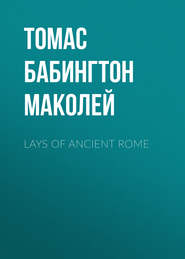По всем вопросам обращайтесь на: info@litportal.ru
(©) 2003-2024.
✖
Critical and Historical Essays. Volume 3
Настройки чтения
Размер шрифта
Высота строк
Поля
Comparable to Gulliver's Travels, 101.
Character of the spirits in, 105.
Division of labor, necessity of, ii. 606.
Donne, John, his wit compared with Horace Walpole's, ii. 204.
Dorset, Lord, his poetical ability, i. 212.
Double Dealer, Congreve's, iii. 82 (#x3_x_3_i21).
Dover, Lord, review of his edition of Horace Walpole's Letters to Sir Horace Mann, ii. 181-231.
Drama, real object of, i. 163.
Delightful character of the old English, 207.
Unnaturalness of the French, 207.
Affected by the closing of the theatres, 209.
Rhyme introduced into, 212.
Folly of the preservation of the unities, 583.
Immorality of the English, at the Restoration, iii. 48 (#x2_x_2_i34).
"Drunken Administration, The," ii. 225.
Dryden, John, essay on, i. 187-234.
His rank among poets, 187.
Affected by circumstances, 187.
Greatest of the critical poets, 214.
His Annus Mirabilis, 215.
His plays, 217.
Unnaturalness of his characters, 220.
Tendency to rant, 222.
The improvement of his work in later life, 225.
Founds the critical school of poetry, 227.
His power of reasoning in verse, 228.
His use of the flattery of dedication, 229.
His characteristics, 230.
Satirical works, 231.
A connecting link between two literary periods, 597.
Admits the justice of Jeremy Collier's attack, iii. 91 (#x3_x_3_i48).
Dumont, M., review of his Souvenirs sur Mirabeau, ii. 95-127.
Services rendered by him to society, 96.
The interpreter of Bentham, 96-98.
His view of the French Revolution, 98-103, 294.
His opinion that Burke's work on the Revolution had saved Europe, 101, 294.
His efforts to instruct the French in political knowledge, 103.
His pen-portrait of Mirabeau, 125.
His revelation of his own character, 127.
Dundas, Henry, investigates Indian affairs, iii. 194 (#x6_x_6_i45).
Sides with Hastings, 208 (#x6_x_6_i68).
Defends him on the first charge, 215 (#x7_x_7_i6).
Follows Pitt on the second, 219 (#x7_x_7_i12).
Dupleix, governor of Pondicherry, his gigantic schemes for establishing French influence in India, ii. 677, 683, 685, 693, 695, 700.
His death, 700, 758.
East India Company, the, its absolute authority in India, ii. 277.
Its condition when Clive first went to India, 674, 675.
Its war with the French East India Company, 677.
Increase of its power, 693.
Its factories in Bengal, 702.
Другие электронные книги автора Томас Бабингтон Маколей
Lays of Ancient Rome




 4.67
4.67












